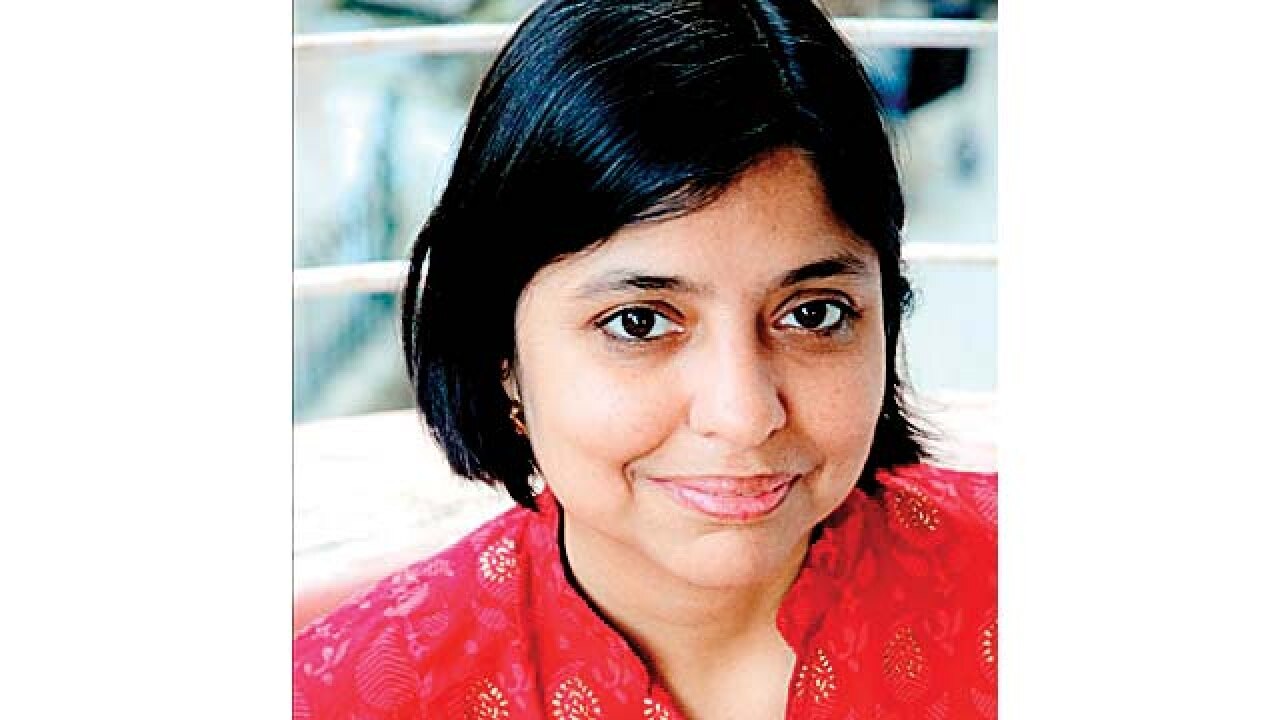
It started even before Aaliya was born. Every time my father spoke, the baby in my tummy tried to reply. Not with words, of course, but with enthusiastic head bangs and elbow jabs.
This connection became even stronger after the baby popped out on a smoggy November night. My father visited his first grandchild in hospital when she was a swaddled, milky bundle, just a few hours old. But the minute she heard his deep, distinctive voice, her eyes snapped open and she struggled to turn her head to get a good look at him. That was it. In that split second, a bond was forged that lasted 13 years.
I suspect my father had been a bit ambivalent about the arrival of this tiny but imperious dictator. He was nervous about childbirth. He was unsure about how her nappies, her colic and her bawls would change his comfortable, semi-retired life. But in that single moment, all his uncertainties dissolved. All his priorities changed. Aaliya had become, as he told every casual acquaintance and startled chowkidar, his ‘Number One’.
Over the next few years, he crawled with her, played cards, and always let her win. He sourced ridiculously expensive fruits for her too. And on one occasion, he even tried to change her very smelly, loaded nappy. (With messy results that must be left to your imagination.)
We lived in the same building as my parents, just three floors down. Aaliya was two years old when her twin sisters were born. After a couple of months of chaos and disturbed nights, she announced, “I’m going upstairs to sleep with nana-nani.”
We thought this arrangement was for one night. Instead, it lasted for years, delighting my father, who kept the room cosy and ready for Aaliya every night. And indulged her every whim, much to the irritation of her practical mother, and even more practical grandmother.
Gradually, of course, Aaliya became busy with homework and violin and football and friends. She had less time for her grandfather. Still, her nana remained her favourite. She wrote innumerable school essays about him (all of which featured the sentence “He is the one person in the world who never scolds me”).
And she worried a lot. “Will nana die?” she asked me at least once a month. “Nana must not die.”
Over the last two years, my father kept poor health. He went in and out of hospital, and Aaliya panicked every time. Then the inevitable happened. This time, when he was taken to the hospital we were told that he was seriously ill.
“Prepare Aaliya,” my mother warned, as we sat outside the ICU. So, that evening I initiated the most terrible conversation of my life.
“Nana is very unwell,” I said.
“But you said he had gone to hospital for tests.”
“Yes, but things are not good. He’s become worse.”
“No. No. Why aren’t they doing something? Why aren’t they treating him?” By this point she was shrieking. “You lied to me. You said he was only going for tests. Will he be in hospital for a very long time?”
“I’m not sure…”
“Tell me the truth. Is he going to die? TELL ME THE TRUTH!”
“Aaliya. Everybody has to go some time.”
“But not nana. Anybody but nana… How can I ever be happy again?”
“You can be happy by knowing that you made nana very happy.”
My father passed away that night.
Aaliya was devastated – as only a 13-year-old can be. She’s still devastated. But over the last few days she’s started talking about her grandfather with a smile again. And I hope that the sunshine of their attachment will warm her for the rest of her life.
(Shabnam Minwalla is an –––author of children’s books, a journalist, and mother of three daughters.)